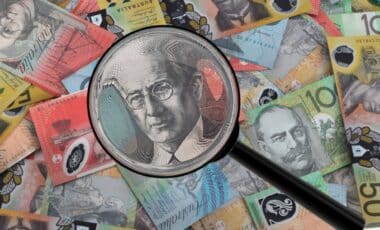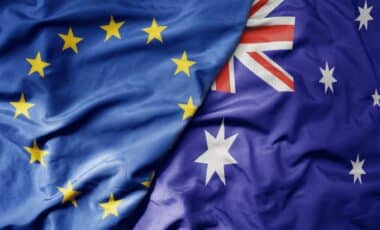Australia’s beef trade with the United States is facing growing criticism, with accusations from U.S. farmers about an unbalanced deal and the potential for new tariffs.
The National Cattlemen’s Beef Association (NCBA), representing 175,000 U.S. cattle farmers, has raised concerns about Australia’s trade practices.
The debate centers on the long-standing ban on uncooked U.S. beef imports, which the NCBA argues has led to a significant trade deficit.
According to The Sydney Morning Herald, this ongoing issue has sparked further tensions between the two nations.
U.S. Beef Industry Voices Concerns Over Australian Restrictions
The NCBA has repeatedly raised concerns with U.S. officials, accusing Australia of using bureaucratic hurdles and stringent sanitary regulations to prevent the importation of uncooked beef from the U.S. Despite the U.S. being one of the largest beef producers globally, the Australian market has continued to benefit from a free trade agreement that the NCBA describes as “unfair.”
The beef industry in the U.S. sees this as a slap in the face, as they argue it is not a reciprocal arrangement. The NCBA claims that U.S. beef is the highest quality in the world and that Australia’s refusal to recognize this is unfair. Kent Bacus, the trade chief and executive director of government affairs for the NCBA, stated,
You can’t ignore a $US29 billion ($45 billion) trade deficit in beef [over 20 years]. All we are asking for is fair trade – that really can’t be too much to ask.
The Role of Reciprocal Tariffs and Non-Tariff Barriers
To address trade imbalances, the U.S., under Trump, is preparing to introduce “reciprocal tariffs” targeting countries with perceived unfair trade practices. These tariffs will also focus on non-tariff barriers, including food safety testing and domestic content quotas for media.
Although U.S. Treasury Secretary Scott Bessent did not single out Australia directly, his remarks on domestic food testing and content quotas in Australia suggest that the country could be impacted by upcoming tariffs.
In fact, the reciprocal tariffs are set to begin on April 2, with each trading partner, including Australia, receiving a score based on its import duties and perceived trade transgressions.
Bessent emphasized that the U.S. will focus not just on tariffs but also on non-tariff barriers, such as testing and media content regulations, which he argued are not aligned with international norms or safety standards.
Australia’s Stance on Trade Negotiations
Australia’s government and agricultural leaders have expressed firm opposition to any weakening of the country’s biosecurity measures. Chris Parker, the chief executive of Cattle Australia, emphasized that these biosecurity requirements are non-negotiable, particularly in relation to red meat.
Parker stressed that Australia’s beef exports are significant, amounting to more than $4 billion annually, and any suggestion to reduce trade barriers is unlikely to be entertained.
Australia is also one of the largest exporters of beef to the U.S., with over $4 billion worth of beef exported in the past year, more than any other country. Additionally, the NCBA claims that grain-fed beef exports from Australia to the U.S. have increased by 220 percent.
This growth has been accompanied by concerns from the American Wagyu Association, which believes that Australia’s unrestricted access to the U.S. market, coupled with the weak Australian dollar, undermines U.S. wagyu sales in a highly competitive market.
U.S. Senate Hearing and Political Pressure
In a U.S. Senate agriculture committee hearing in late February, NCBA President Buck Wehrbein voiced concerns about the U.S.-Australia free trade agreement.
He criticized Australia for having benefited from U.S. beef imports for 20 years without reciprocating the favor. He specifically stated that Australia has not spent one red cent with the U.S. in return.
The NCBA also indicated that it would press the U.S. administration to address what it perceives as the unfair trade imbalance and revise export quotas that were set too generously, with some previously unattained quotas triggering tariffs.
Australia’s Biosecurity and Trade Policy
Australia’s leaders remain firm in their stance on biosecurity and trade negotiations. Chris Parker stated,
Promoting free trade and market access is a fundamental issue for us, and any suggestion from the NCBA to the contrary is something that we will vigorously oppose on behalf of Australia’s beef producers.
Despite the criticism, Australian Trade Minister Don Farrell emphasized that Australia imposes no tariffs on the U.S. and that the U.S. has enjoyed a healthy trade surplus with Australia for decades. Farrell also reiterated that Australia will always stand up for its interests and would not yield to pressure on trade issues.
Future of U.S.-Australia Trade Relations
The trade relationship between the U.S. and Australia has been a subject of growing tensions, with increasing calls from U.S. farmers and industry leaders to address what they see as an unfair imbalance.
As the U.S. prepares to introduce new tariffs and address concerns over the beef trade, both countries face pressure to resolve their differences and ensure a fairer, more balanced trading environment.
In addition to the beef trade, the article also highlights that American medical giants are urging the U.S. administration to use tariffs to punish Australia for its pharmaceutical benefits scheme, which subsidizes medicines for millions of Australians.
These broader concerns indicate that U.S.-Australia trade relations will remain a point of contention as both sides prepare for further negotiations.
Australia is determined to defend its position, with Meat and Livestock Australia planning meetings with NCBA representatives next week, and Chris Parker scheduled to meet with U.S. cattle industry leaders next month.
With reciprocal tariffs on the horizon, the future of these trade dynamics remains uncertain. The outcome of these negotiations could significantly impact the U.S.-Australia trade agreement and the broader beef export market.









